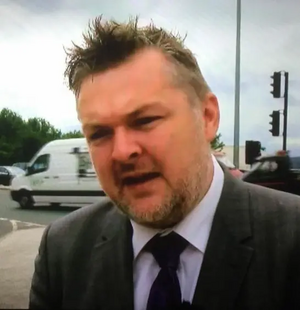Bus and Metro cuts and price rises threats - Labour's failure to agree puts public transport across the region at risk. Joined up thinking in short supply

You may not be familiar with the North East Joint Transport Committee (JTC). It oversees public transport and infrastructure from Berwick to Barnard Castle, and administers capital and revenue budgets including that of Nexus, which funds Metro, many bus services, and the Shields Ferry, alongside arrangements for public transport in Northumberland and Durham. Its membership is limited to council leaders and deputy leaders (mainly Labour), without any opposition to challenge or ask questions.
The JTC is holding an emergency meeting this week to try to agree its 2022/23 budget in the face of a forecast Nexus budget deficit of £21 million that threatens significant cuts to subsidised bus services next year, along with unspecified efficiency savings and fare increases. If proposals to raise Tyne and Wear Transport Levy contributions by the 5 local authorities by £4.5m are not agreed unanimously, there is a significant risk of cuts to Metro too.
The JTC should have its budget in place by now, but a decision was postponed in January amid claims this was to allow more time to lobby Government for an extension of bailout funding for Metro, which along with other transit systems like London Underground has seen a reduction in passengers and a sharp fall in fare income during the pandemic. If agreement is not reached by February 15th, the JTC may be obliged to issue a Section 114 notice that it is unable to balance its budget, risking severe financial constraints.
Newcastle's Labour council leadership will have to decide on Wednesday whether they will agree to a £1.1m increase in their 2022/23 Levy contribution to £17m. This hasn't been provided for in its 2022/23 budget plans and may necessitate a further rise in council tax. It means an uncomfortable choice between asking council taxpayers to pay more for a public transport system that's being cut, or allowing even greater cuts to the public transport network which will do little to further the council's already optimistic aspirations to become Net Zero by 2030.
There's a wider political issue here too. The underlying Nexus budget deficit predates the pandemic and is the result of several years of councils freezing their Transport Levy contributions, so that real terms public transport spending is effectively at 2010 levels. The region's transport governance arrangements are already messy due to the failure of Labour council leaders to agree a single combined authority structure, and there appears not to be unity on the Tyne and Wear Transport Levy. Yet the region clearly wants more transport powers to be devolved from central government, as has already happened in other city-regions.
The challenge for the region's leaders is to demonstrate that the region can be trusted with more powers and a greater budget when they are unable to agree on how to resolve the current budget crisis and put public transport finances on a sustainable course. It is easy for the region's Labour leaders to constantly call for more Government funding, but devolution must also involve a locally-raised financial contribution via fares and council tax and it is the responsibility of the JTC to set out how they will achieve this.
The Liberal Democrats Opposition in Newcastle believes that it is vital to maintain a good quality public transport system for the city and region, but fully accepts that it will be controversial to raise council tax and bus and Metro fares when there is already a cost of living crisis. With no seat at the JTC table, we do not have a say at Wednesday's meeting, but we nevertheless urge the council leadership and JTC not to push through damaging cuts to public transport provision.
Joined up thinking on transport policy is urgently needed. We all want to see the long awaited Metro upgrade and a high frequency low emission bus network to counter car dependency, congestion, and poor air quality. Rather than placing the burden of funding public transport on council taxpayers and passengers, the solution to the funding crisis is to make a clear connection between reducing car use and sustaining public transport by linking imminent clean air charges and a potential workplace parking levy to fund clean public transport alternatives.
The current direction of travel on public transport funding in Tyne and Wear is heading over the edge of a cliff. Will the JTC finally listen and act on Wednesday or will we be here again this time next year?
Author Cllr Greg Stone (pictured) is the Liberal Democrats Opposition spokesperson on transport, Newcastle City Council and a member of the JTC Overview & Scrutiny committee
